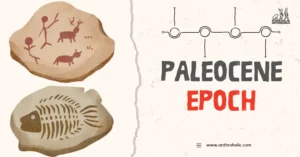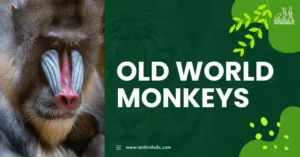AI Answer Evaluation Platform Live Now. Try Free Answer Evaluation Now
Ashley Montagu
Ashley Montagu was a groundbreaking anthropologist and passionate humanist who dedicated his life to challenging racism, pseudoscience, and the misuse of biology in understanding human difference. Born in England and later becoming a U.S. citizen, Montagu emerged in the mid-20th century as one of the most articulate and public-facing voices in anthropology, advocating for the idea that race is not a biological reality but a social myth.

Trained in both psychology and anthropology, Montagu bridged scientific research with public discourse, writing prolifically for academic and popular audiences. His most famous work, Man’s Most Dangerous Myth: The Fallacy of Race (1942), became a cornerstone in the movement to dismantle scientific racism. He also worked with UNESCO to author influential statements on race, pushing international institutions to reject racist ideologies during a time when such views were still widespread.
Montagu’s charisma and clarity made him a frequent guest on television, a popular lecturer, and an accessible writer whose influence extended far beyond academia. He tackled controversial topics like gender equality, child development, and cooperation, always with a deeply ethical lens. In doing so, he helped shape 20th-century understandings of what it means to be human-not through divisions, but through shared dignity.
Early Life and Education
Ashley Montagu was born as Israel Ehrenberg on June 28, 1905, in London, England, to Eastern European Jewish immigrants. Growing up in a working-class environment and encountering antisemitism firsthand, he became acutely aware of how arbitrary social distinctions could shape one’s life. These early experiences deeply informed his later views on race and inequality.
As a young man, Montagu studied at University College London, where he came under the intellectual influence of prominent biologist Julian Huxley and anthropologist Bronisław Malinowski. These mentors helped him develop a scientifically rigorous but socially engaged approach to human diversity. He changed his name to Ashley Montagu during the 1920s, reflecting his desire to integrate into the English academic elite and later the American intellectual landscape.
He moved to the United States in the 1930s, where he earned his Ph.D. in Anthropology from Columbia University under the guidance of Franz Boas, often considered the father of American anthropology. Boas’s commitment to cultural relativism and anti-racism deeply shaped Montagu’s scholarly path.
Academic Career and Public Engagement
Montagu’s academic career included teaching positions at institutions such as Rutgers University, New York University, and Harvard, though his tenure was often disrupted by political controversy. In 1955, he was dismissed from Rutgers-officially for insubordination, but many believe his outspoken views on race, evolution, and education during the McCarthy era played a significant role.
Undeterred, Montagu turned increasingly to public education. He became a frequent guest on television talk shows such as The Tonight Show, where he discussed anthropology, race, and ethics with a general audience. His communication style-clear, warm, and provocative-helped bring anthropological insights to millions outside academia.
One of Montagu’s most influential public roles was as rapporteur of the 1950 UNESCO Statement on Race, a document that sought to challenge the biological basis of race and promote a universal humanism in the aftermath of World War II. His leadership helped establish a new global scientific consensus that race is a social construct, not a biological determinant.
Theoretical Contributions
Montagu’s most enduring theoretical contribution was his critique of race as a biological category. In his landmark book Man’s Most Dangerous Myth: The Fallacy of Race (1942), he argued that race is not grounded in objective science, but rather in social prejudice and historical misuse of biological thinking. The book was radical at the time and has since become a foundational text in anti-racist anthropology and sociology.
He was also one of the first anthropologists to emphasize the importance of early childhood development, emotional nurturing, and human bonding. In The Natural Superiority of Women (1953), he provocatively argued that evolutionary biology and anthropology actually favored female strengths—a view that anticipated later developments in feminist anthropology.
Montagu was an early advocate of humanism in science, arguing that researchers had a moral responsibility not just to uncover facts but to use them for the betterment of society. He insisted that anthropology should foster compassion, cooperation, and dignity, making him a vocal critic of scientific determinism, racism, and sexism in both academic and public life.
Publications and Research Focus
Ashley Montagu was an exceptionally prolific author, producing over 60 books and hundreds of essays during his lifetime. His writing addressed a wide range of topics including race, gender, evolution, childhood, and social justice, always from a humanist perspective. His style was accessible, even conversational, which made his anthropological ideas widely readable and culturally influential.
Notable Works:
- Man’s Most Dangerous Myth: The Fallacy of Race (1942, revised multiple times)
This seminal text dismantled the notion of race as a biological fact and established the idea of race as a social and cultural construct. It became a foundational work for both civil rights activists and scholars. - The Natural Superiority of Women (1953)
In this bold and controversial work, Montagu argued that evolution and anthropology favor women in terms of emotional intelligence, resilience, and adaptability. It challenged mid-20th-century gender norms and helped inspire early feminist thought. - The Elephant Man: A Study in Human Dignity (1971)
A compassionate exploration of the life of Joseph Merrick, this book combined medical history and anthropology to argue for the recognition of humanity and dignity in those society deems different. - Touching: The Human Significance of the Skin (1971)
A pioneering work in human development, this book emphasized the importance of tactile experience in early life and argued that affection and human contact are essential for psychological health and social cohesion.
Montagu’s research was wide-ranging, but he consistently returned to themes of cooperation over competition, cultural over biological determinism, and nurture over nature. He took a holistic view of the human condition, one that valued ethics, empathy, and evolutionary adaptability.
Influence and Legacy
Ashley Montagu’s impact on 20th-century thought extends far beyond anthropology. He helped shift public understanding of race from a fixed biological identity to a historically constructed social category, influencing disciplines such as sociology, psychology, education, and civil rights law.
His work with UNESCO had global implications. The 1950 and 1951 UNESCO Statements on Race, to which he contributed heavily, marked a turning point in international scientific consensus against racism. These statements directly challenged the pseudoscience that had fueled colonialism, slavery, and the Holocaust.
Montagu’s ideas also influenced the civil rights movement in the United States. While he was not a political activist in the traditional sense, his writings gave intellectual weight to the fight for racial equality and justice.
As a public intellectual, he paved the way for figures like Carl Sagan and Neil deGrasse Tyson-scientists who communicate complex ideas with clarity, conviction, and a deep moral purpose. His belief in human dignity and cross-cultural understanding remains central to anthropological ethics today.
Selected Works and Recognitions
Major Publications
- Man’s Most Dangerous Myth: The Fallacy of Race (1942)
- The Natural Superiority of Women (1953)
- On Being Human (1950)
- Touching: The Human Significance of the Skin (1971)
- The Elephant Man: A Study in Human Dignity (1971)
- Growing Young (1981)
Recognitions
- Served as rapporteur for UNESCO’s Statement on Race (1950)
- Fellow of the American Association for the Advancement of Science
- Recipient of the Humanist of the Year Award from the American Humanist Association (1995)
- Frequently featured in Time and The New York Times for his views on race, science, and human rights
- Subject of numerous scholarly tributes and retrospective essays in anthropology and sociology journals
Montagu’s legacy lives on in modern debates about race, gender, and identity. His insistence that science must serve humanity-not divide it-continues to guide anthropological ethics and public discourse.
Conclusion
Ashley Montagu was not just a prominent anthropologist-he was a moral voice in 20th-century science, consistently arguing that compassion, equality, and human dignity must be central to our understanding of humanity. At a time when scientific racism and biological determinism still held sway, Montagu stood apart as a courageous critic, using his scholarship to challenge dangerous myths and advocate for a more just world.
His contributions to debunking the concept of race, promoting gender equality, and emphasizing the importance of nurture and cooperation in human development laid a foundation for much of today’s progressive anthropology and sociology. Through his books, lectures, and media appearances, he brought anthropological ideas to a wide public, influencing not only academia but also education policy, civil rights discourse, and international human rights frameworks.
Montagu’s legacy remains powerfully relevant in the 21st century, as debates about race, identity, science, and social justice continue. He reminds us that scholarship should serve humanity, not dehumanize it-and that the role of an anthropologist is not just to observe cultures, but to defend the shared worth of every human being.
References
- Encyclopedia Britannica – Ashley Montagu
Detailed biography highlighting his contributions to anthropology and humanism.
https://www.britannica.com/biography/Ashley-Montagu - The Guardian – Obituary: Ashley Montagu
Obituary discussing his role as a public intellectual and critic of scientific racism.
https://www.theguardian.com/news/1999/dec/01/guardianobituaries1 - Harvard Square Library – Ashley Montagu
Biography focusing on his humanist philosophy and social activism.
https://www.harvardsquarelibrary.org/biographies/ashley-montagu-anthropologist-and-social-biologist/




